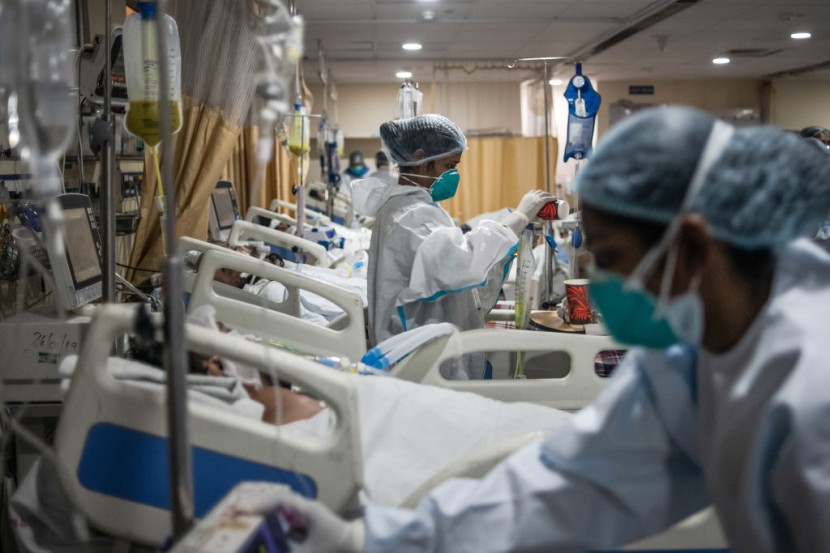
India's health officials have cautioned doctors to keep an eye out for mucormycosis, or "black fungus" infections, among COVID-19 patients, particularly those with diabetes. The disease, which can be deadly, can cause facial pain, black discoloration of the nose, numbness or swelling, fever, chest pain, and other complications.
Mucormycosis infection discovered among COVID-19 patients
According to the Centers for Disease Control and Prevention (CDC), black fungus is caused by a group of molds that reside in the soil and most often attacks the sinuses or lungs after inhaling fungal spores. But it can also appear on the skin after a bite, burn, or other injuries. Patients with diabetes, cancer, transplant survivors, reduced white blood cell levels, long-term corticosteroid use, a history of injection drug use, patients with excess iron, and premature or low-birthweight infants are also at risk for the unusual infection.
Per Fox News, the fungus cannot be passed from a person or animal. "There have been cases recorded in many other nations, including the United Kingdom, the United States, Brazil, France, Austria, and Mexico. And one of the causes is that there is a lot of diabetes that is poorly controlled," David Denning, a professor at Manchester University and an expert at the Global Action Fund for Fungal Infections, told Reuters.
Severe cases may necessitate surgery, including removing an eye, depending on the location of the affected tissue. Antifungal medication should be administered intravenously or orally. According to BBC News, a Mumbai-based eye surgeon, Akshay Nair, has already seen 40 patients with the infection in three hospitals in April. He told the news agency that many of the patients had diabetes and a history of coronavirus infection.
For the time being, the Indian Council of Medical Research has urged doctors to track blood glucose levels after COVID-19 discharge and in people with diabetes and use steroids with caution - the right pacing, dosage, and length - to reduce the number of cases.
Indian hospitals recorded an increase in black fungus cases
As hospitals record an increase in cases of mucormycosis, or "black fungus," in COVID-19 patients, the Indian government has advised doctors to look out for symptoms of the uncommon yet possibly fatal infection. While India has not released national data on mucormycosis, it has stated that no significant outbreaks have occurred.
Cases have been recorded in Maharashtra and its capital, Mumbai, as well as Gujarat. However, it is a complication that India's overburdened hospitals should do without since they are seriously short of both beds and oxygen for critically ill COVID-19 patients.
Hospitals in India are documenting an increase in cases of mucormycosis, or "black fungus," following the second wave of COVID-19. The majority of the patients had diabetes, and signs appeared two weeks after recovering from COVID-19. Eleven of the patients had to get an eye removed to avoid the virus from spreading, which is fatal in most cases.
According to Reuters, there is no global data on mucormycosis outbreaks, and Indian officials have confirmed no significant outbreak. One expert said the figures tend to be higher in India, which has a high diabetes rate than other nations, Business Insider reported.
Related Article: Russian President Vladimir Putin Warns Rise of 'Nazi' Beliefs in Speech for the Anniversary of WWII's End
@YouTube
© 2025 HNGN, All rights reserved. Do not reproduce without permission.








